QUB study shows pine martens are more common in NI than thought
- Published
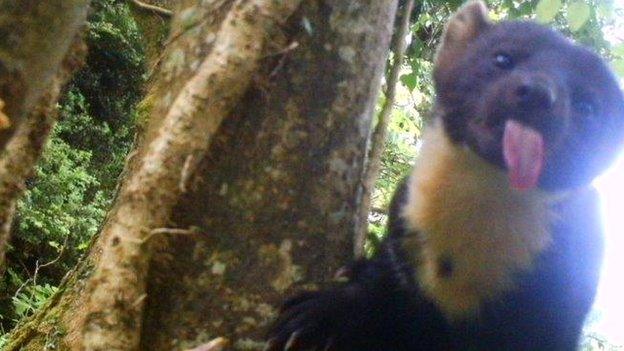
Pine martens were captured on camera by researchers
A once rare and elusive forest dweller is much more common in Northern Ireland than was previously thought.
The pine marten, a cat-sized carnivore related to the stoat, was believed to be confined mostly to forests in the west of Northern Ireland.
But a survey by Queen's University, Belfast, and 70 volunteer conservationists has shown that pine martens are present in every county.
The teams used camera traps in 250 forests to capture images and videos.
Footage of a pine marten during the QUB-led study
The cameras were placed opposite squirrel feeders in the woods.
The researchers returned a week after placing the traps and shared the images with scientists.
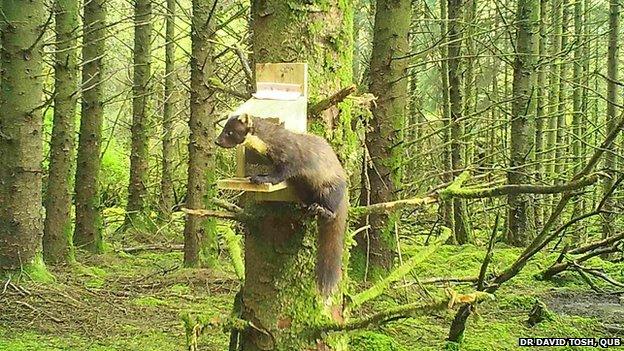
The team placed camera traps opposite squirrel feeders in 250 forests to capture footage of pine martens
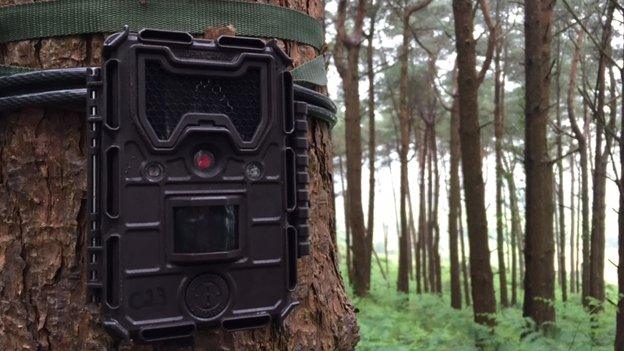
Researchers returned after a week to see what had been captured by the camera traps
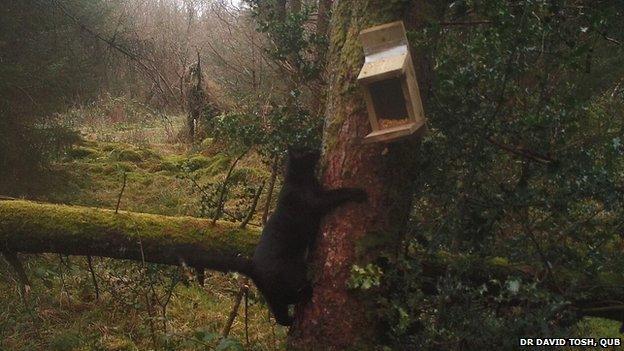
Pine martens were not the only animals caught on camera during the survey - cats, squirrels and birds were also filmed at the feeding boxes
The project was led by Queen's University academic Dr David Tosh.
"Scientists usually survey for pine marten by looking for their faeces (or scats as they are known) along forest tracks and roads and due to confusion with fox and stoat faeces, genetic testing is required to confirm the source," he said.
"The use of remote cameras bypasses the need for these complicated and more expensive techniques and can be done with a minimum of training."
It is the first comprehensive survey of its kind using this technique.
"We simply could not have done a project of this scale in such a short period of time without the help of the citizen scientists," Dr Tosh added.
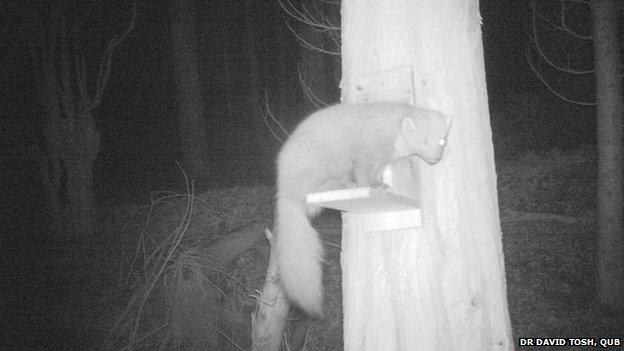
The use of remote cameras has cut down on the need for more expensive survey tecniques
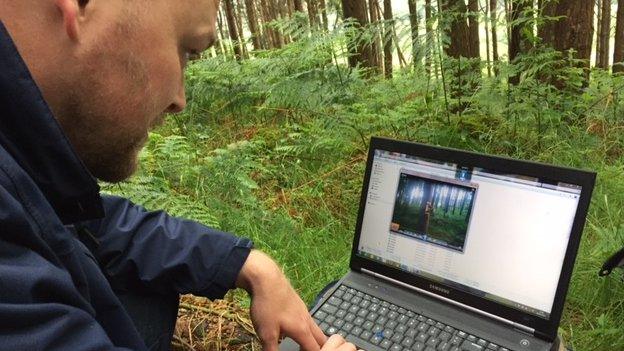
Researchers are then able to analyse the footage gathered by the camera traps
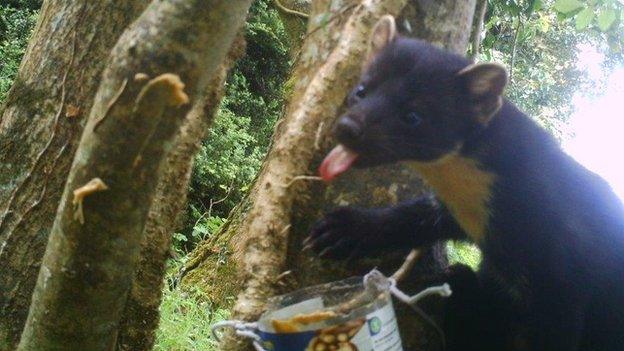
Some pine martens had a defiant look in front of the camera
The project was paid for out of the Challenge Fund, set up to distribute money from the plastic bag tax to environmental projects.
The research will be used to help with the conservation of native red squirrels.
It is thought there could be a link between the pine marten population and the numbers of reds and greys.